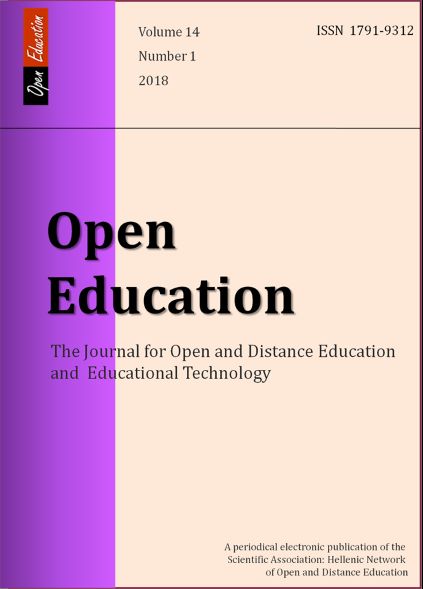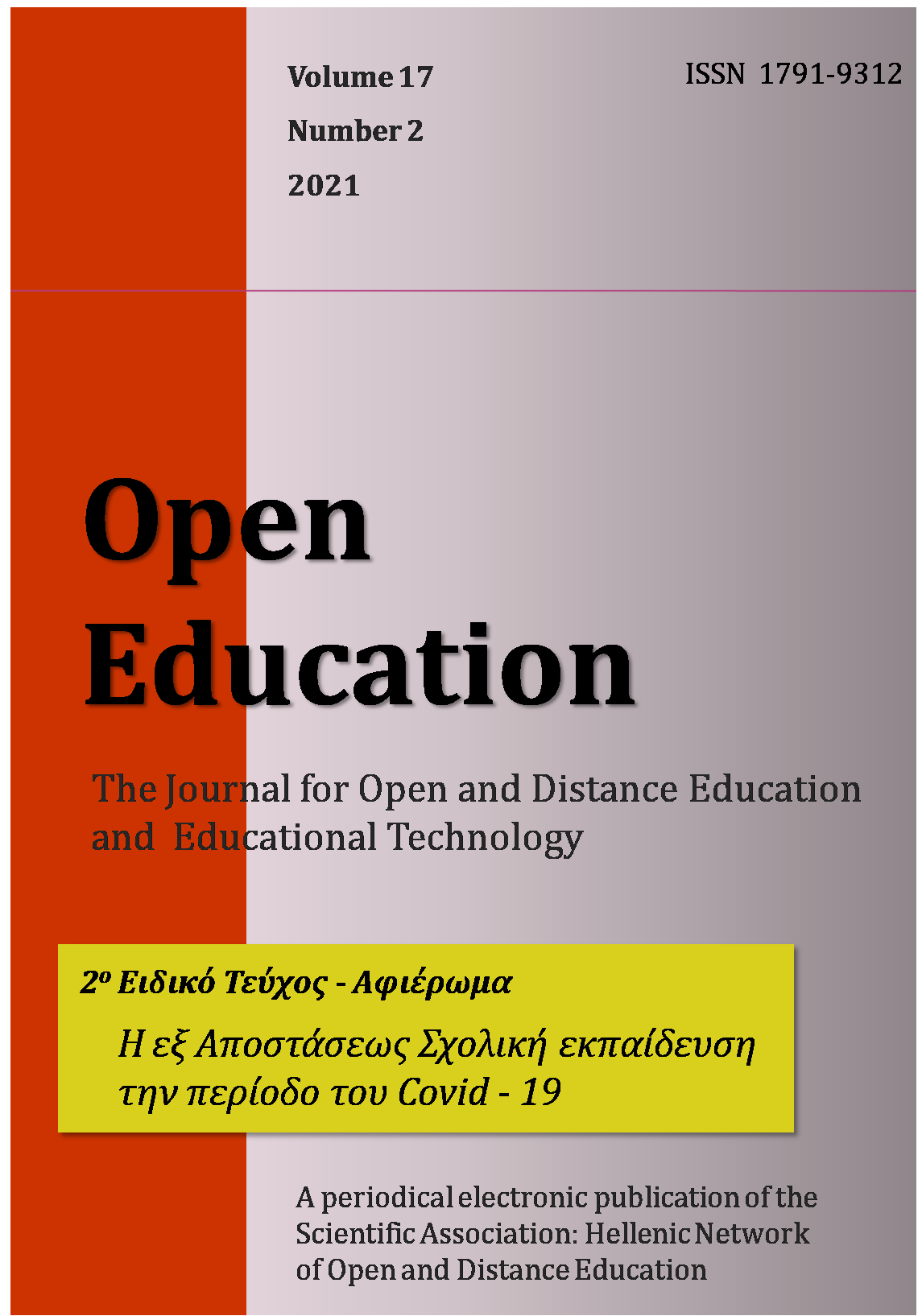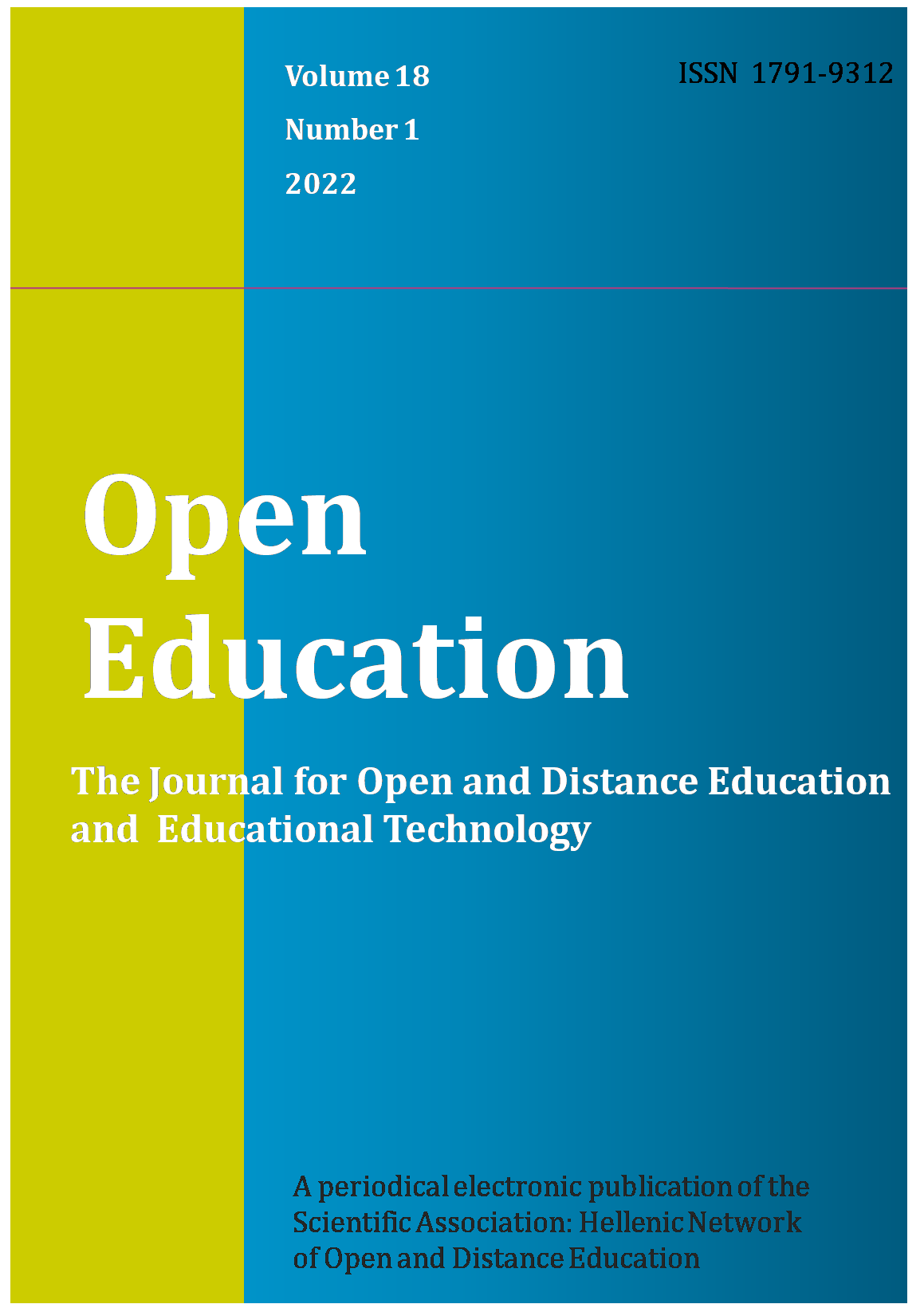Students' Satisfaction Forecasting Factors of the Hellenic Open University
Abstract
The purpose of this research was to investigate whether certain factors could predict the satisfaction of students of the Hellenic Open University (HOU) from their studies and the results were compared with corresponding surveys conducted for other universities. Based on the data collected from the questionnaire and in accordance with the results of the Ali, Ramay & Shahzad (2011) survey, the conclusion is that the majority of students attending HOU’s distance education programs are pleased at a fairly high percentage of student performance, of the quality of the curriculum and the studentstudent interaction. In terms of gender, statistical analysis did not show a significant gender impact on the average satisfaction rates of students, but showed significant differences in age. More specifically, the satisfaction of the interaction with the teacher consultant is increasing for students in the age group over 50 and the performance of the counseling professor differs for those over the age of 50 from those under the age of 40. Researchers' views differ in relation to the importance of age but this may have to do with the sample of research. In our survey, 98% of the students were over 30 years of age, while in Shehab's study 15% of her sample was under 20 years of age. The findings of the survey showed a strong correlation of student satisfaction with program evaluation, moderate positive correlation of student satisfaction with teacher performance and weak positive correlation of student satisfaction with studentprofessor, while in the study of Ali, Ramay & Shahzad (2011) there is a strong correlation of student satisfaction with teacher performance and program evaluation and moderate correlation with student-teacher interaction.
In order to investigate the prognosis of the independent variable (students satisfaction) from the three factors mentioned above, the statistical method of stepwise regression was used and findings show that the program evaluation was responsible for 34% of the satisfaction variance, while the other variables introduced later did not interpret an extra percentage of the variance of pleasure. These results contradict the study by Ali, Ramay & Shahzad (2011), where all three factors contribute greatly to the interpretation-prediction of student satisfaction. The conclusion is that the satisfaction of students depends to a large extent on the evaluation of the program and more specifically on whether the students acquire valuable learning experiences from the group counseling meetings if the work they have done is useful, if the educational material is useful and adequate, if the objectives of the thematic unit were clear and understandable, if the processes of control and evaluation of their learning paths were pedagogically correct and finally if the planned hours of study was adequate to meet the student needs. All the above factors can be used by education managers and the relevant ministry to facilitate the learning process by using an effective teaching methodology and to provide methods and techniques to improve the quality of education provided by the HOU, improve the institution of distance learning in Greece in order to respond more to the interests and requirements of the students, to facilitate the adaptation of the student to the educational environment, as well as to facilitate the adaptation of the environment to the needs and characteristics of the student leading to achieve the purposes and objectives of education and student satisfaction is high.
Article Details
- How to Cite
-
Iliou, T., Tamvakis, A., Anastassopoulos, G., & Giossos, Y. (2018). Students’ Satisfaction Forecasting Factors of the Hellenic Open University. Open Education: The Journal for Open and Distance Education and Educational Technology, 14(1), 72–79. https://doi.org/10.12681/jode.16068
- Issue
- Vol. 14 No. 1 (2018)
- Section
- Section 1
Copyright Notice
Authors who publish with this journal agree to the following terms:
Authors retain copyright and grant the journal right of first publication with the work simultaneously licensed under a Creative Commons Attribution Non-Commercial License that allows others to share the work with an acknowledgement of the work's authorship and initial publication in this journal.
Authors are able to enter into separate, additional contractual arrangements for the non-exclusive distribution of the journal's published version of the work (e.g. post it to an institutional repository or publish it in a book), with an acknowledgement of its initial publication in this journal.
Authors are permitted and encouraged to post their work online (preferably in institutional repositories or on their website) prior to and during the submission process, as it can lead to productive exchanges, as well as earlier and greater citation of published work.





